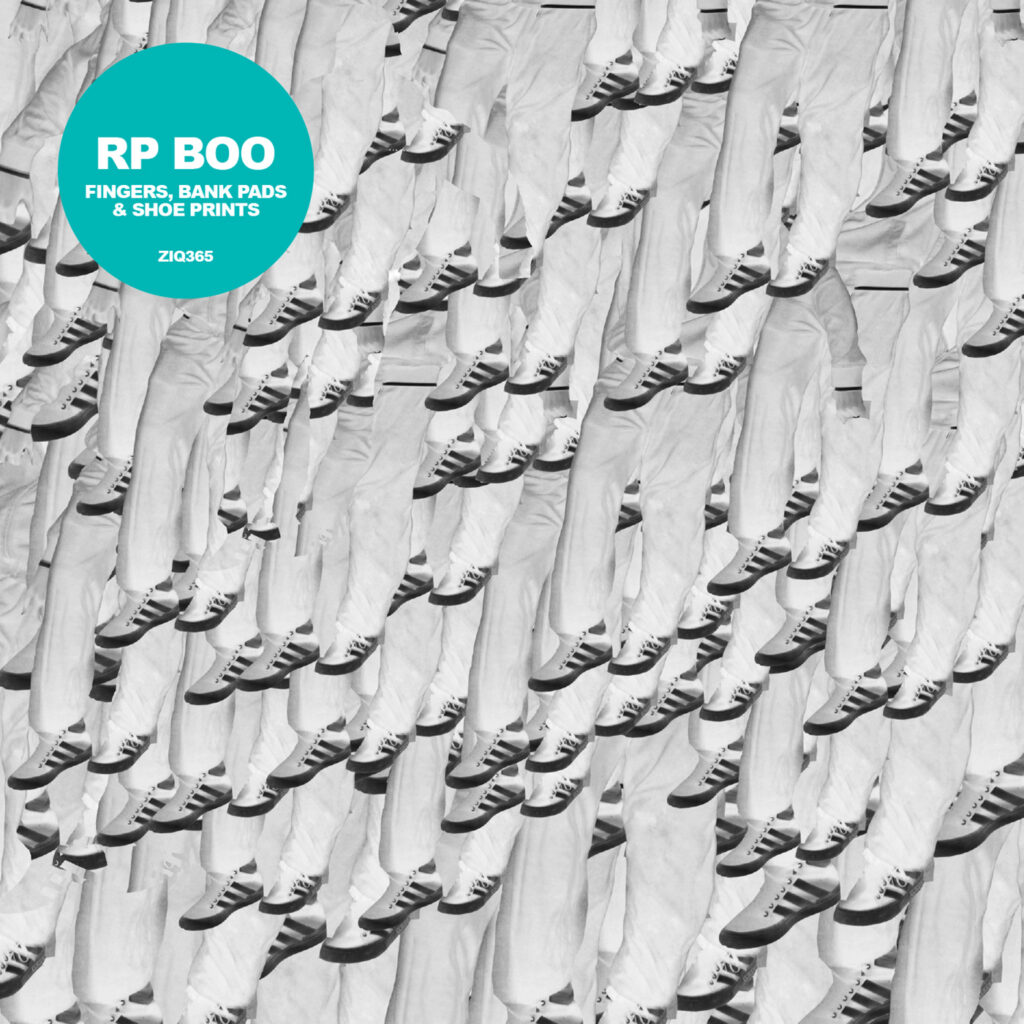To talk with any kind of authority on how the genre of footwork has evolved, it’s necessary to try and pinpoint its Year Zero. This is kind of tricky, and Kavain Space – a producer, now in his forties, who records as RP Boo – has a great deal of responsibility for this trickiness. Amidst an ever-mutating culture of dance music in Chicago, distinct scenes and genres coming together at unlikely intersections, Space’s intuitive, self-taught approach to making beats led to him creating what’s now considered the first ever footwork track, back in 1997. Exciting stuff, in a history-dork kinda way, but also anomalous: it would take years for his producer peers to catch up. Moreover, the early footwork scene is woefully underdocumented, tracks being created chiefly for in-club dance battles and rarely pressed to vinyl.
At the risk of being all, how you say, Eurocentric about this, it wasn’t until Planet Mu Records started releasing footwork albums in 2010 that most people outside of Chicagoahad a chance to acquaint themselves with the style. It’s since exerted a large influence on underground dance music, even if there’s little evidence of it in the UK singles charts (in the way that acid house, rave, jungle and garage all crashed the party); if we’re to consider the last five years of footwork in isolation, then, most of its progression has been in respect of its global reach.
On a sonic level, there’s little evidence of self-importance or personal grandeur. You could call this stuff experimental, especially the way Boo goes about it, but it’s loyal to the wishes of the dancefloor. Put it this way: five years was also how long it took Goldie to go from his first twelve-inch to Saturnz Return. Meanwhile, Fingers, Bank Pads And Shoe Prints – RP Boo’s second album for Planet Mu – has no hour-long prog excursions, rather fifteen tricksy, itchy, endlessly inventive footwork belters, which do little more than uphold the finest tenets of the genre, and are perfectly laudable for that.
One of his most recognisable production tropes, vocal snippets spoken by Boo himself as if they were samples, is in full effect on the album’s opener, the bullish ‘1-2D-20’2’. "Represent your set … you know who we are!" our man exhorts over snare claps and a sawing, corpulent bassline, before shouting out a laundry list of what I assume are local footwork crews and dancers. "In the park we battle," ‘Bang’n On King Dr.’ reaffirms; "motherFUCK your favourite DJ!" scoffs ‘Finish Line D’jayz’, over and over again until you come to and find your record collection dumped in a skip outside. To a fair extent, Fingers… is a footwork album about footwork – and why not? If anyone’s earned the right to propagate a scene that celebrates itself, it’s this man.
Few if any other producers can touch an RP Boo beat for its sheer exhilaration factor. Sliced up, sped up and microscopically precise, footwork novices might find it hard to reconcile the various elements of a track like ‘Heat From Us’ or ‘Daddy’s Home’, all dramatic synths and chattering snares. Maybe to some people, it’ll always sound like a rhythmically nonsensical clash, but time immersed in these productions can draw you deep into Boo’s hypnotic soundworld. (It seems likely that British people, or anyone who isn’t an actual footworker, are going to remain incapable of dancing properly to this, but who cares? Not the footwork DJs who play in Europe, as far as I can tell.) ‘Suicide’ functions, intentionally or not, as a callback to Chicago club music’s rich history, in that it’s a pretty straight-laced, if blistering, acid-meets-ghetto-house number with a fizzing Robert Armani-style chassis.
As was also apparent on Legacy, his debut album from 2013 (strictly speaking a collection of tracks spanning several years’ work, rather than an ‘artist album’ per se – such is also the case with Fingers…), Boo also has a fine ear for melancholy and tenderness. ‘Your Choice’ is an appropriation of Kenny Loggins’ ‘This Is It’, picked apart and restitched so its bassline sounds like microhouse and its cymbals sound like free jazz being played with brooms instead of brushes. ‘Sleepy’ is unnervingly sparse, coated in knackered-vinyl crackle: strident and hardball when Boo’s voice demands "Get off our back," elegant and hauntological when the operatic female vocal sample drops. And to close, the nearest this album comes to self-aggrandisement – which is to say, humbleness is still the watchword, just leavened with pride – in the form of another Kenny Loggins interpolation, ‘B’ware’.
"He’s a man in his glory, a boy in his dreams," croons Loggins & Messina’s ‘Pathway To Glory’, while RP Boo extends a salute to "all my footworkers" and, amusingly, "my Myspace freaks" (NB: the moribund website was actually pretty important to the footwork network, once upon a time). "Whatever you see, you can do it … it’s time to move juke out the way, cause I am footwork." Despite the emphasis, I think the message here is supposed to be that Kavain Space, having birthed a distinct style of dance music, wants to wear this as a badge of honour – rather than suggesting that he and he alone embodies that style. Either way, he remains one of its most brilliant proponents, and it scarcely matters if Fingers, Bank Pads And Shoe Prints isn’t redefining many people’s ideas of the genre. Anyone drawing up a list of electronic music’s vanguard circa 2015 still needs to consider RP Boo.
<div class="fb-comments" data-href="http://thequietus.com/articles/18223-rp-boo-fingers-bank-pads-and-shoe-prints-review” data-width="550">


